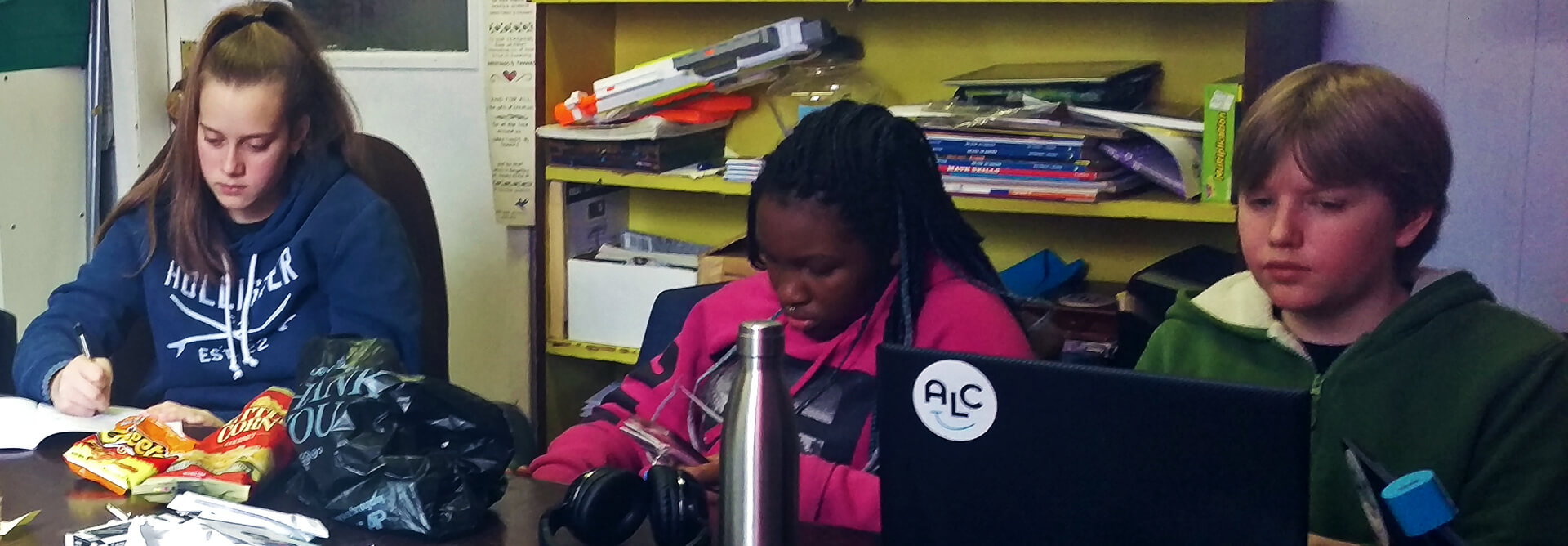I’ve always had an interest in democratic education, so when a “liberated learning” center opened in town, I was curious.
Here was an environment, in the form of a teen drop in center, designed to meet the needs of young people for whom conventional schooling was not a workable option.
Adults were on hand – some trained teachers, others not -as guides and resources for teens who spent the day as the spirit moved them. The rules were simple: no rudeness or bullying, no loud noise to disturb others, no leaving the premises without parental or other adult supervision. And if you make a mess, clean it up.
I designed a course in “community economics,” a mix of history, social science and cultural critique. We were to meet a couple of times a week and to go where the winds of exploration might lead us.
Three students signed up.
At our first meeting, I handed out a syllabus and threw out some ideas about various field trips we could take. We were going to examine the fundamentals of community building as a hands on experience.
Braden, Kayleigh and Summer sat there stone faced.
“Well,” I thought after our initial session, “we’re not off to the worst start in the world.” But when I returned the following week, none of the three showed up.
So it went the following week and the week after that. I dutifully came to the center and waited for someone, anyone, to come to my class.
On what was to be my final day if no one came, I spied Braden in the main room. “Braden,” I went over to where he was busily engaged with his iPad, “I’ve missed seeing you in our little seminar.” Braden looked up from the screen and went, “It wasn’t very interesting. Plus you don’t present well.”
Just then, a cluster of animated teens came swarming around Braden’s table. Braden doled out assignments in connection with some online game he’d invented. When the others drifted away, I said, “That was quite a little dust up you were called on to handle just now.” “They don’t get it although I’ve made it perfectly clear,” Braden scowled.
It seemed that Braden was the coordinator of a rather complex, multi-faceted video game in which the participants were awarded points and status with the inducement of financial gain if they made it to the next level.
“The Bitcoin algorithm isn’t all that complicated,” Braden explained. “You have your wallet and your tracings. The value of your holdings goes up and down over time like the value of any currency. It’s not as though I’m asking them to mine the remaining horde.”
“You’re financing your operations with Bitcoins?”
“Yes, there’s a ceiling of twenty-one million Bitcoins. That’s all there’ll ever be. It’s not like the dollar that you can inflate until it becomes worthless.”
As I took this revelation in, I caught a glimpse of Kayleigh in the corner playing with her cell.
“Hi, Kayleigh,” I ventured over and took a seat beside her.
“Hi,” she said in a timid voice, her face looking glum.
“I’m sorry my little course didn’t interest you,” I said apologetically. “It seems I don’t present well.”
“I was only there ’cause I was waiting for my mom,” she said.
We sat quietly for a moment. Then, in a tiny voice, she said, “Like I’m always waiting for my mom.”
“To come get you after work?”
“If she works,” Kayleigh went back to playing with her cell.
“Apps,” I said, gazing at her cell’s tiny display. “The things you tap on.”
Kayleigh looked up from her tapping.
“I’m from the rotary age,” I said. “Phones. Not the Club.”
“Have you ever seen a dead little girl?”
“Have I ever... a dead litt... No, I never have,” I shook my head.
“She’s lying on a pile of broken glass. She’s bloody and cut to pieces and she’s dead.”
“Where? How?” I said.
She handed me her cell. She hadn’t been tapping apps. She’d been typing on the little keyboard you use for text messaging.
What I read, in the next thirty seconds, startled me: a description of what Kayleigh had just been saying but rendered with such precision, clarity and emotion that I couldn’t believe such forceful expression had come from the heart of what seemed to be a depressed fourteen-year-old.
“Is this yours? You wrote this?” I looked at her diminutive size. “It’s very powerful.”
She shrugged.
“The little girl... Is she you?”
She shrugged again.
“Can she come back to life?”
“She can’t! She’s dead!!” Kayleigh grimaced and, snatching her cell from my hand, turned away.
On my way out the door, I happened past Cat’s desk.
“Wait, before you go,” Cat reached into a drawer and took out a sticky note. “It’s for you.”
The note said: “Thanks, Ed. Summer.”
“Summer came to my first class meeting,” I looked at Cat.
“I know. Her name’s on the sign up sheet.”
“But she didn’t come back.”
“Probably ’cause she qualified.”
“For...?”
“The state finals. She hasn’t been around since a few weeks ago.”
Every morning, at six thirty, rain or shine, Summer’s at the indoor rock climbing gym, training to compete in the highest ranked class for her age group. She’d just copped first place in the western division and was on her way to the state finals and possibly glories beyond that.
Community economics can wait.
There are spirits in youthful bodies that classrooms can’t contain. Be it brilliance, exuberance or the crying need for love, these spirits need space to breathe, room to move and older folks who can open doors and stand aside as young people whoosh, wander or wobble through them at their own pace in their own time.
Taped to the wall in my study there’s a bumper sticker that says, “Learning is natural. School is optional.”
I’m from a time when school was natural and learning was optional. Not to complain. School worked well for me. But for these young people on a road that, for now, is less traveled, I suspect they’ll arrive at adulthood much the better for the difference down which their liberated path is taking them.
If you enjoyed this article and feel called to give back to ASDE, here are ways you can support our work:
- Donate money
- Share our content with others! Click one of the buttons above to easily share on Twitter, Facebook, or email.
- Consider becoming a Contributor for Tipping Points
Tipping Points Magazine amplifies the diverse voices within the Self-Directed Education movement. The views expressed in our content belong solely to the author(s). The Alliance for Self-Directed Education disclaims responsibility for any interpretation or application of the information provided. Engage in dialogue by reaching out to the author(s) directly.






